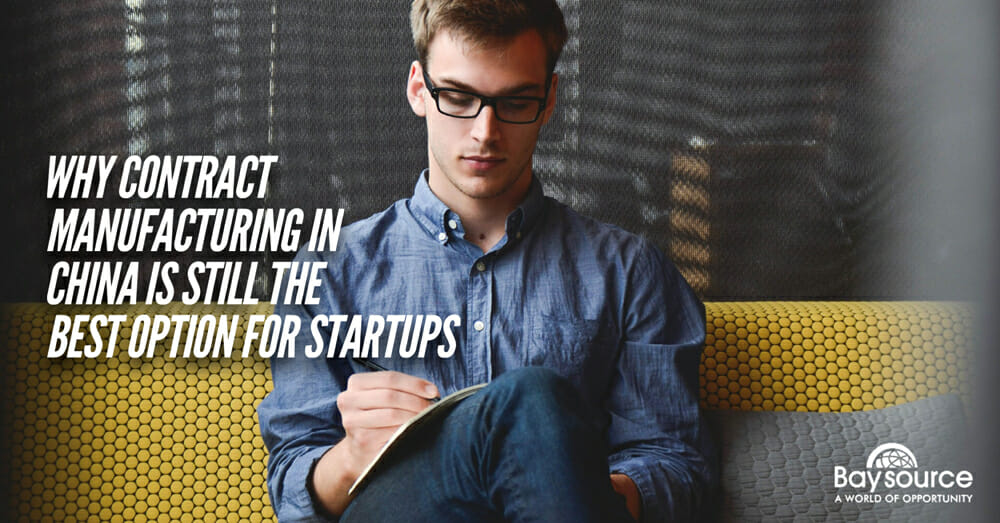
In the startup community, most of the focus is centered upon market research and finding funding opportunities. However, once they gain momentum, many startups don’t have a plan in place for manufacturing to scale. This causes problems when demand for new product booms, but the startup isn’t prepared to meet what the market dictates. Some startups will try to manufacture themselves, but without the capital or operational efficiency needed, companies hinder their own growth by keeping production in-house.
Other startups choose to partner with a manufacturer and outsource the work. This is often the most cost-effective solution, as the company doesn’t have to raise the funds to buy a manufacturing facility and staff. Companies shy away from this option due to lack of experience, or fear of losing control of the quality of their products. Misconceptions about the costs and trustworthiness of outsource manufacturers lead many startups in the wrong direction.
Manufacturers overseas, especially in countries such as China, have advanced manufacturing industries, partially due to the transfer of technology and quality control practices from the United States. They can deliver the same quality as U.S. manufacturers without the cost of U.S. labor. Aside from the cost benefits, overseas manufacturers are easier to find and welcome new business from U.S. startups.
Typically, raw materials costs are consistent globally, but labor costs are not. To find the right manufacturer, companies should look for partners where the cost of labor is 25% of the finished goods price. This should be to find a contract manufacturing partner with the right balance of cost and quality. Other factors to consider include the manufacturer’s timeline and production capability, communication systems, and quality control.
Tips for Successful Outsourcing:
Startups that choose to source their manufacturing overseas should be careful before signing a contract. With so many options, there is no reason to rush into a contract without asking the right questions and reviewing several proposals.
Quality Control
Startups should select a factory that has their own quality control department; one that is reliable and provides data to clients to ensure production quality standards are met. In a Request for Proposal, companies should ask for examples of QC processes and checks. Clients should also schedule audits with their manufacturer to ensure the information they receive is accurate and held to the expected standard.
Competition
Contract manufacturers often have similar clients, sometimes even serving competitors in the same market. Some manufacturers even have their own marketing departments to push sales of their products, which can hurt the sales of their other clients’ products. Startups should choose a factory that is only a manufacturer and doesn’t have a marketing arm or presence at U.S. trade shows. Look for manufacturers who don’t sell competing goods in other markets, and include this contingency in proposals and agreements.
Cost of Outsourcing in China
Manufacturing costs don’t simply amount to raw materials and cost of labor. Freight, shipping, and quality should also be considered. Startups may choose a cheaper manufacturer, only to disappoint the market with lower quality than was expected. The cost of bad quality hurts more than the initial costs of hiring the right manufacturer. When considering other factors in the total landed cost, companies should set a firm budget. For example, freight and shipping should not exceed 10% of the total landed cost of goods.
Supply Chain
Every aspect of the supply chain needs to be managed daily by the client or sourcing agent, not the manufacturer. Maintaining consistent communication and tracking shipments, as well as implementing an audit system to ensure quality across the board are essential steps to securing the supply chain and reducing error.With these considerations, startups should have all the tools necessary to create lasting relationships with overseas manufacturers, while meeting market demands under budget. Startups seeking an outsourcing partner should look to a China sourcing agent to help find the right match, and navigate the waters of overseas product development and production. For more information about outsource manufacturing best practices, read this Beginner’s Guide to Doing Business in China.

Follow Us